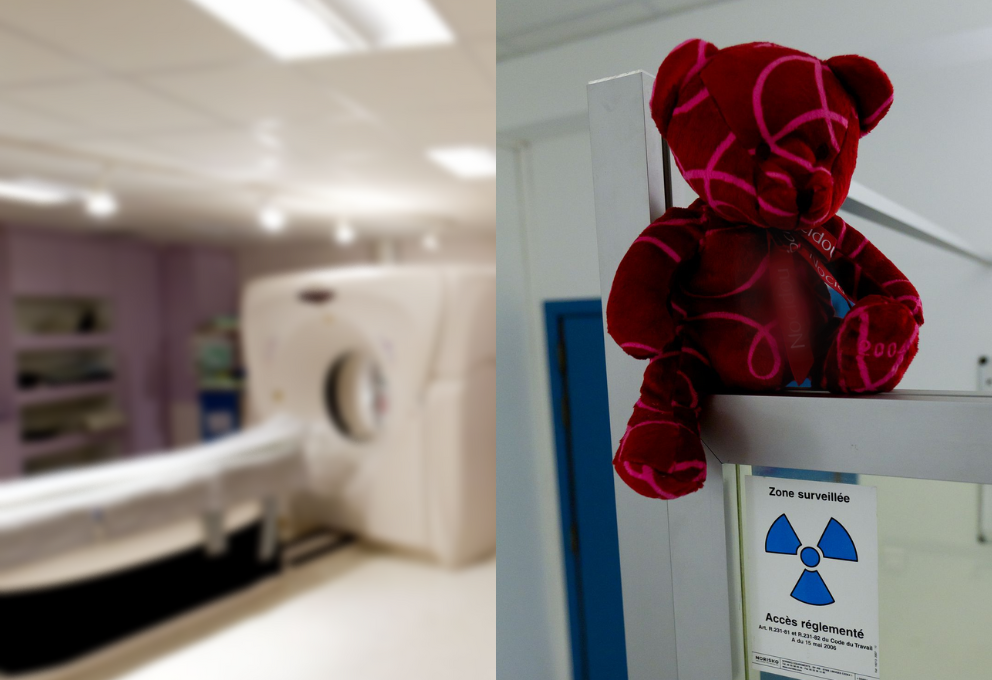Contact project managers :
- Marie-Odile Bernier

EPI-CT (Epidemiological study to quantify risks for pediatric computerized tomography and to optimize doses) is an international epidemiological study that seeks to assess the risk of long-term effects for children and adolescents exposed to ionizing radiation during CT scans. It was launched in 2011 and is coordinated by the International Agency for Research on Cancer (IARC), with partial funding from the European Commission as part of the 7th Framework Program (FP7-Fission-2010-3. 2.1).
Completion dates : 2012-2016
Funding : Euratom FP7-Fission
Partners : International Agency for Research on Cancer (IARC), France - Universitaetsmedizin Der Johannes Gutenber - Universitaet Mainz (UMC), Germany, Sweden, Karlinska Institutet (KI), Great Britain? University of Newcastle Upon Tyne (UNEW) , Spain Fundacio Centre de Recerca en Epidemiologia Ambiental - CREAL, France - Institut national de la santé et de la recherche médicale (Inserm), Netherlands Stichting Het Nederlands Kanker Institut (NKI), Belgium Studiecentrum Voor Kernenergie (SCK-CEN - France Institute de radioprotection et de sûreté nucléaire (IRSN), - France Centre d'assurande de qualité des applications technologiques dans le domaine de la santé (CAATS), Luxembourg Centre de recherche public Henri Tudor (CRP)- Norway Norwegian Radiation Protection Authority (NRPA), Oslo Universitetssykehus HF (OUS), France Institut Curie (IC), Belgium Universiteit Gent (UGent), USA University of Florida.
Advisors : Dr Choonsik Lee (National Cancer Institute), USA and Pr Wesley E. Bolch (University of Florida), USA.
CT scans are a vital tool used every day in modern medicine for medical diagnosis. The doses received by the target organs during a CT scan are much higher than during a standard x-ray. For example, the stomach receives approximately 12.5 mGy during an abdominal CT scan, which is 50 times higher than the dose received during an abdominal x-ray. Despite the medical benefits, the increasing use of CT scans leads to an increase in the total doses of ionizing radiation received by patients.
The medical and scientific community is increasingly interested in the potential long-term risks of this exposure (cancer, leukemia, etc.). Several recent studies seem to show an increased risk of cancers of the central nervous system and leukemia (Pearce 2012, Matthews 2013, Huang 2014). However, the radiation-induced effects observed at these dose levels (a few dozen mGy) must be confirmed due to the methodological limitations of the studies published.
The EPI-CT study was launched to study the existence of a relationship between exposure to ionizing radiation during CT scans on children and adolescents and the possible delayed health effects.
The EPI-CT study specifically seeks to :
A total of 18 European partners (Belgium, Denmark, Germany, Finland, France, Luxembourg, Netherlands, Norway, Spain, Sweden, United Kingdom) are cooperating on this study, which seeks to establish a cohort of approximately 1 million patients. The results could help better assess the risk associated with CT scan exposure and if required, develop new strategies to reduce the doses received during these exams.
In nine participating countries, the cohorts of young patients who have had at least one CT scan are established from the radiology departments of partner hospitals. In each cohort, the number of young people who developed cancer during the observation period was identified (period varies from country to country and generally begins between 1990 and 2000 and ends in 2013). The occurrence of cancer will be analyzed taking into account the individual dose received in order to estimate the relation dose response between cancer occurrence and the dose received. Analysis will also take into account the CT scan practices of each region and country in pediatrics. Pilot study on potential biological biomarkers of interest is also launched for a sample of patients.
The EPI-CT project is organized in eight Work Packages (WP) :
IRSN is actively involved in the EPI-CT project with the French cohort for children exposed to CT scans (Cohorte Enfant Scanner) (link to specific web page). IRSN is also involved in various Work Packages: methodology (WP2), data collection (WP3), dosimetry analysis (WP4) and statistical analysis (WP6).
Data collection in the different countries will be finalized in late 2015. Calculation of the doses received and statistical analysis should start in the first half of 2016. The first estimations of the risks of cancer associated with CT scan exposure from the joint study of the 9 cohorts should be published in late 2016.
Laboratories : LEPID - Medical Radiation Protection Expertise Unit

LEPID conducts research into the effects on human health of occupational, medical or environmental exposure to low doses of ionizing radiation. This work is based on the epidemiological monitoring of cohorts and innovative statistical analyses, in collaboration with partners in France and other countries.